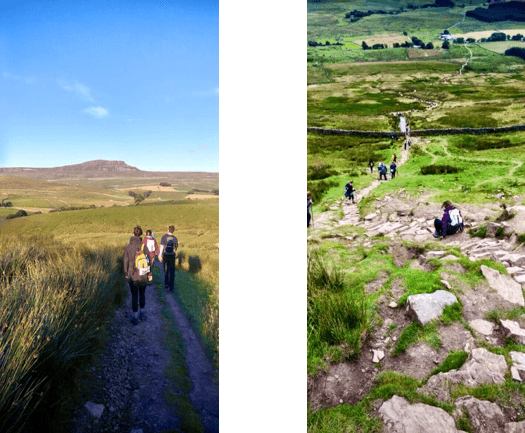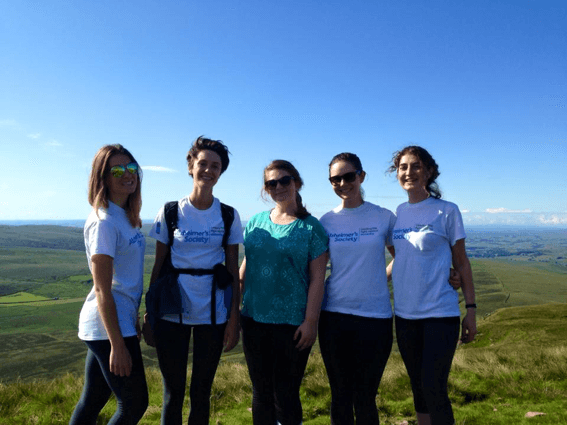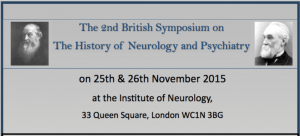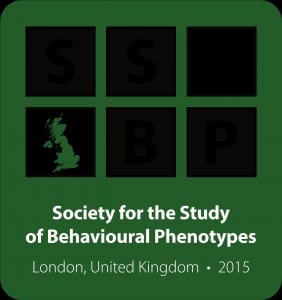Taking the Pulse of Qualitative Health Research in a Changing World
By rejuhll, on 3 July 2018

Professor Catherine Pope on “radical change oriented health research.”
This blog post is co-written by the QHRN committee and also appears on the QHRN website.
On June 25th, the UCL Qualitative Health Research Network hosted a workshop on qualitative approaches to studying change in health, illness and care, supported by the Wellcome Trust. Our workshop—Responding to Change: Perspectives from Qualitative Health Research—also aimed to “take the pulse” of the qualitative health research community as it engages in the theme of change. Reflection on this theme comes as we look towards our 4th biennial symposium—Crafting the Future of Qualitative Health Research in a Changing World—planned for 21st-22nd March, 2019.
Change is happening constantly—it is nothing new. But it has what seems an intrinsic and inexhaustible capacity to present and assert itself as such. We are witnessing major change in healthcare environments across the globe and across multiple dimensions. Rapid technological advances, personalised medicine, and on-going demands for more patient involvement, to name just several fundamental shifts underway now. These advances are happening against a backdrop of major geopolitical and demographic change, with ageing communities, global austerity and the biggest wave of mass migration since the second world war. These bring significant social consequences for patients, practitioners, policymakers and society at large and they are seriously challenging established forms of care, the allocation of resources and the inscription of new roles, responsibilities and relationships. At a different scale, change is a fundamental feature of care—we aim to make people better or prevent them becoming ill—and we design ways of intervening in people’s lives in complex ways. These changes also require nuanced analysis.
As a network—and as independent researchers engaged in qualitative work—we have become increasingly interested in the contributions researchers engaged with qualitative approaches can make to the study of change and how we can help healthcare communities to anticipate and navigate the many and complex social consequences entangled with it—as commentators, theorists and as agents of change. And we are also interested in the tensions it produces for researchers—as we too have to navigate its many flows. In short, our goal was to reflect on these questions: How can we study change qualitatively? How does change, by virtue of its fleeting nature and unintended effects, complicate normative approaches in qualitative health research? How can we respond to change in meaningful and timely ways?
Our call for papers drew a healthy number of varied and fantastically thoughtful submissions from around the globe. From these, we selected 24 participants and asked them to submit brief papers for circulation before the workshop. This greased the wheels for discussion and got participants acquainted with each other’s work. Researchers came from a variety of academic homes (including anthropology, sociology, science and technology studies, psychology, and medicine), countries (including the UK, Canada, Australia, Spain and Hong Kong), and experience (from PhD students to Professors, and people with direct experience of illness and care).
Catherine Pope, Professor of Medical Sociology at the University of Southampton, started off the day with a rousing keynote lecture, setting the tone as one of deep reflection and progressive action. Reflecting on what will soon be 30-years of work that has done much to place qualitative approaches on a more solid footing in the academy of health and social care sciences, Cathy provoked us to think about what a community of researchers engaged in “radical change oriented health research” might look like. What followed certainly rose to her provocation.
In a packed and experimental day of discussion, each participant summarised their paper in a 4-minute speech, without PowerPoint and with an alarm to call time. Intervention … alarm … intervention … alarm—like a four-minute pulse sending forward the conversation. What might have been sacrificed in terms of longer more detailed accounts was gained in the generative effect of keeping things open and at a point of imminence—itself a key feature of change.
We ordered papers into three sessions—Tensions and opportunities in evaluating and creating change; Methodological reflections on studying and responding to change; Theorising change and its processes—after which we drew breath and engaged in longer group discussions.
Tensions and opportunities in evaluating and creating change—The papers in our first session discussed the features and complexities of studying change when the boundaries between researcher and researched are blurred. Offering examples from approaches broadly characterised as participatory, engaged, and co-produced, these papers suggested productive possibilities and tensions in researcher standpoint and positionality—how researchers are located in the research field. The opportunities discussed included the possibility of integrated accounts of change between researchers and community; while tensions and challenges included the will to balance impartiality in research with engaged practice when researchers of change are also agents of change. Collectively, these papers called into question what we mean by the categories of expertise, experience and engagement and their relationships to how communities imagine and try to enact alternative futures for health and care.
Methodological reflections on studying and responding to change—The papers in our second session offered ways of using and enhancing qualitative methods to study change within individuals and populations and across multiple kinds, rates and degrees of change. They reflected deeply on broader societal change, policy, and individual attitudes, suggesting how flexible and adaptive approaches like oral history, longitudinal interview and ethnography might better enable us to capture change. Here, stories are traced as they unfold, wresting accounts of subjectivity and society from the static quality of snapshots to the more dynamic character of the moving picture. The papers in this session also offered reflections on the timely dissemination of research in rapidly changing environments, such as epidemic disease and service reorganisation. These papers tackled questions of rigour, relevance and timeliness, and how advocates of rapid approaches might address accusations of being “quick and dirty.”
Theorising change and its processes—The papers in our final session broadly cohered around concepts and mechanisms of change. They offered theoretical perspectives on studying change, its processes and the critical need to account for social context. Papers suggested ways to theoretically integrate different levels of change (e.g., micro, meso, macro), consider how change occurs across multiple temporalities (kinds and rates of change), and reflect on its broader dynamics and relationships to continuity. These papers therefore drew attention to structural conditions and contexts—for example, funding, policy, and governance—which bear upon how we can think about and study change.
As we look forward to our 4th symposium, we report that the pulse of qualitative health research and its investments in studying change is strong, supporting a body of researchers adapted and ready for radical change oriented health research. This approach is extremely capable of producing the rich and nuanced accounts that are much needed to help patients, health and social care practitioners, policymakers, and society at large, anticipate and navigate the social consequences of change as it unfolds continuously through multiple arenas. A big thank you to all who participated. Read more about the workshop in our detailed report … coming soon!
The UCL Qualitative Health Research Network is a cross-faculty collaboration between UCL Department of Applied Health Research, UCL Division of Psychiatry Qualitative Researchers Working Group supported by the Marie Curie Palliative Care Research Department, and UCL Research Department of Behavioural Science and Health, and it is open to anyone interested in qualitative health research in the UK and abroad. We hold a Wellcome Trust award, which supported the workshop in addition to our quarterly seminars and forthcoming international two-day symposium planned for 21st-22nd March, 2019. Check here for more details.
 Close
Close








 The 2nd British Symposium on The History of Neurology and Psychiatry is on 25th and 26th November
The 2nd British Symposium on The History of Neurology and Psychiatry is on 25th and 26th November


 research journals and conferences, and the marked presence of qualitative researchers in academic centres of health research.
research journals and conferences, and the marked presence of qualitative researchers in academic centres of health research.